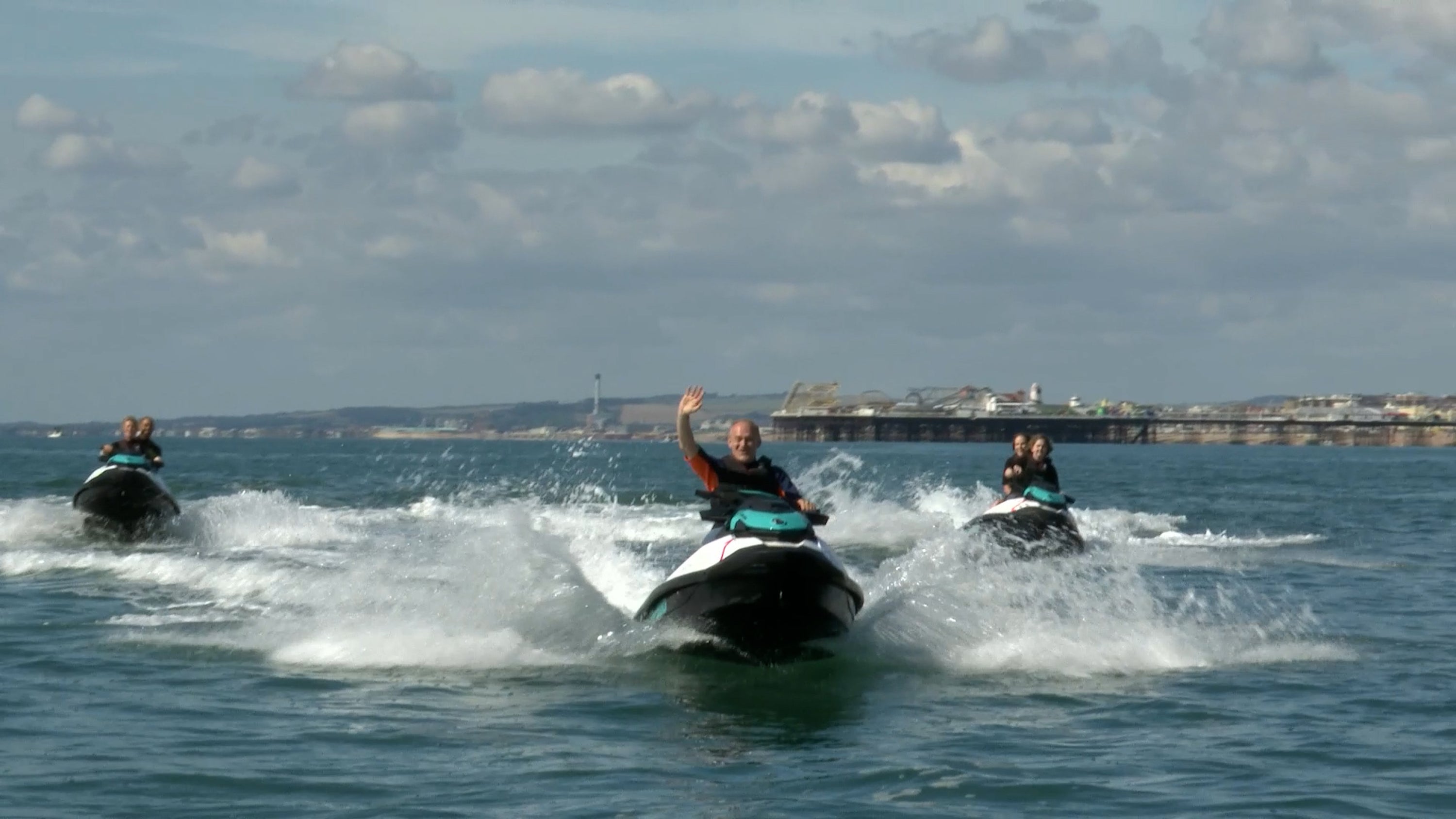Can the Lib Dems continue on their winning streak now the election is over?
After a stunning campaign that saw them win 72 seats, the party looked set to make ripples – but it’s all gone a bit quiet. Sean O’Grady considers what Ed Davey can do to sustain the excitement


True to recent election stunt form, Ed Davey turned up to the Liberal Democrat conference on a jetski, presumably because Elon Musk couldn’t lend him a rocket for the occasion. Energetic and attention-grabbing as the leader’s speedy entrance was, the last few days of earnest debate haven’t seen the party raise its profile very much. Indeed, even with its stunning tactical success in the general election, which yielded 72 parliamentary seats – a gain of 61 on the 2019 result – the party hasn’t made much progress since. Some wonder where the Liberal Democrats go from here...
What are the Lib Dems for?
They always used to say that if they didn’t exist, someone would have to invent them, because for a long period they were the only party consistently advocating membership of the European Union (and its forerunners), civil liberties, electoral reform and the environment. They also happened to be the natural, default home for a protest vote, especially during unpopular Tory governments. But nowadays, the party has some formidable competition in all of these areas.
The 2010-15 coalition government, dominated by the Conservatives, wreaked enormous electoral damage, from which it has only just begun to make a significant recovery – the words “tuition fees” will still produce a wince in Liberal Democrat circles. The Greens have obviously monopolised the environmental agenda, while Reform UK and a new wave of pro-Palestine/leftist independents have mopped up a portion of the protest vote. All of the smaller parties want electoral reform.
What about Europe?
What about it? Naturally, given that the Lib Dems are by far the most Europhile of all the national parties, their membership is militantly pro-EU and in favour of rejoining Europe as soon as possible. This has embarrassed the party leadership, which is wary of alienating supporters the party has recently recruited from the Conservatives (even though they are probably more Euro-friendly) and getting bogged down in an argument with the Farageists about free movement of labour when it isn’t going to happen anyway.
It’s probably sufficient for them that people know they’re pro-EU, wanted a second referendum, and have campaigned to have the UK join (and/or stay in) the EU at every general election since 1955 (except in 2024). As time goes on, it may well become a more central feature of their appeal.
What do they want now?
The conference theme was the NHS and social care, and for Davey himself, as a long-term carer, there’s a personal and dignified commitment, too. Generally, the party has reverted to its traditional, pre-coalition stance of attacking Labour from the left – made all the easier by the replacement of Jeremy Corbyn’s international socialism with Keir Starmer’s “British pragmatism”. They are, in other words, roughly where Charles Kennedy left them. The human rights of refugees, public services as a whole, clean water, green energy, and planning to protect the environment constitute an attractive, if sometimes inconsistent, offering from this reborn centrist party.
What does the future hold?
Further progress – if they can simultaneously compete for the votes of disaffected Labour voters and any remaining centrist Conservative dissidents – but the Greens, Reform and the Corbynista independents are, of anything, even more willing to push populist solutions. The party has been rebuilding its traditional base in local government, and the 2026 elections for the Scottish parliament present the prospect of a return to the stable Labour-Lib Dem coalition that governed the country from 1999 to 2007.
Although his party only got 12.2 per cent of the vote this summer, and came fourth behind Reform UK, Davey will be able to lead the party for as long as he wishes, free from much grumbling among rivals. He also has some highly able lieutenants, such as deputy leader Daisy Cooper, Munira Wilson, Sarah Olney and Layla Moran.
Could they return to government?
It’s quite possible. They won’t, if they have any sense, repeat the mistakes of 2010 and let the Conservatives back into power, and the solid bloc of Lib Dem seats in the South West and the home counties represent a roadblock against any chance of a return to majority Conservative rule. Rather more likely would be a confidence-and-supply agreement with Labour – short of a coalition, but providing stability if Starmer suffers a serious reverse next time out.
Indeed, the Liberal Democrats could exert some pressure on Labour, for instance to rejoin the EU customs union or single market (not that Labour would need that much encouragement). But it’s a long way away, and for now, the Lib Dems’ positioning, as a nice, more socially enlightened, progressive pro-European party, standing in stark contrast to a more extreme Tory party led by Robert Jenrick or Kemi Badenoch, should serve them very well.



Join our commenting forum
Join thought-provoking conversations, follow other Independent readers and see their replies
Comments